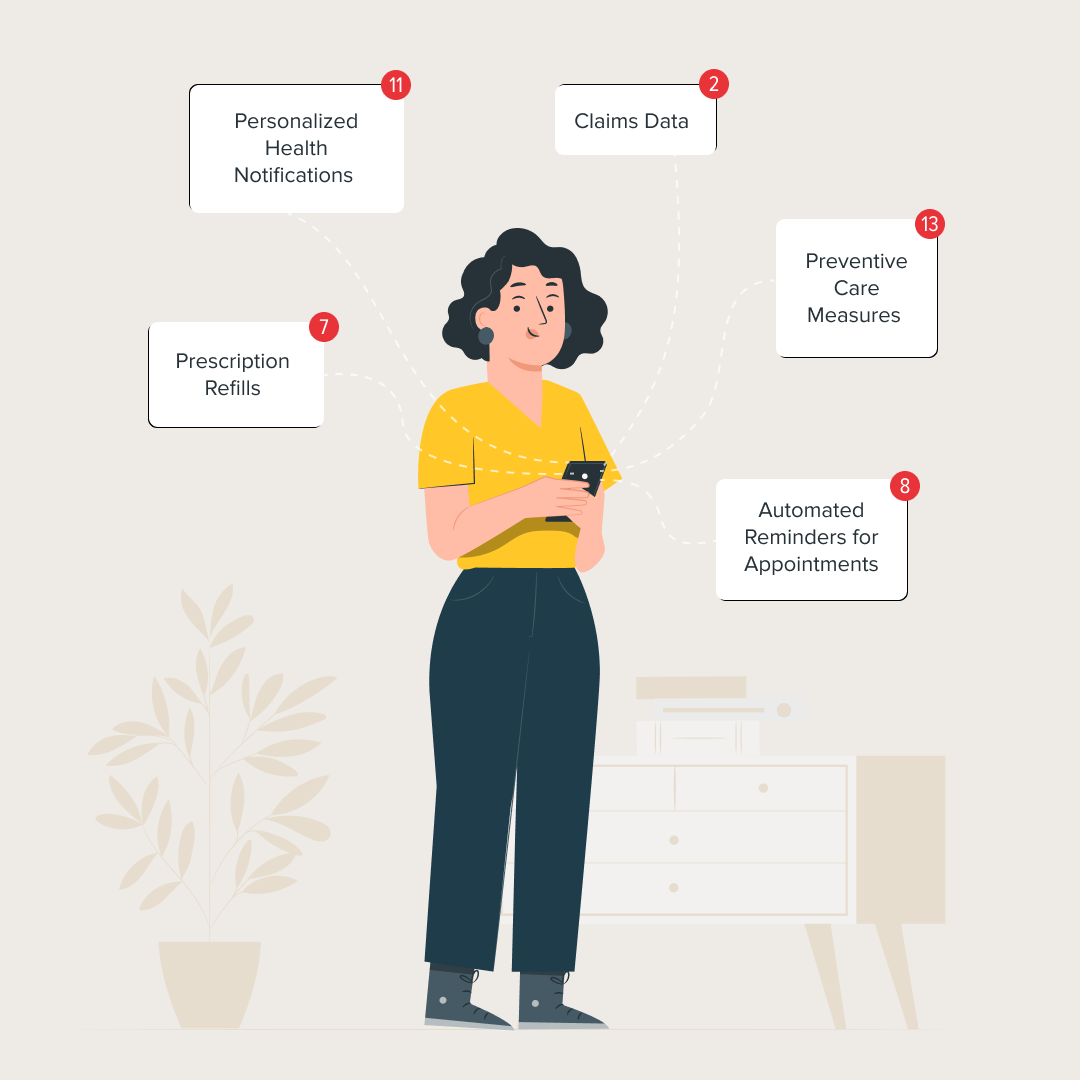Revolutionizing Payer Engagement, Enhancing Member Satisfaction, and Improving Health Outcomes
The Power of Digital Engagement Tools for Medicare Payers

In an age where digital innovation is reshaping industries, the Medicare payer sector has the opportunity to revolutionize its services by embracing digital engagement tools. The adoption of these tools could lead to substantial improvements in acquisition, engagement, retention, utilization, and Net Promoter Score (NPS) metrics for both new and existing members.
Digital engagement tools open new avenues for acquiring Medicare beneficiaries. With the majority of the population relying on an entirely too large (and sometimes untrustworthy) field of information and services outlets, a strategic online presence that creates a foundational relationship between payer & beneficiary can be the key transformation sorely needed. Utilizing personalized tools from the initial touch point can streamline the acquisition journey, making it more accessible and appealing to a defined audience that simply needs to be approached on their terms. It’s not that the Medicare beneficiary community doesn’t want digital tools – they are plenty savvy! Any geriatrician or UX pro will both tell you it’s all about a defined approach.

Digital tools offer a dynamic platform for engaging with members throughout their healthcare journey. From personalized health notifications to interactive and personalized educational content, digital engagement tools empower Medicare payers to establish a continuous and meaningful connection with their members. Real-time communication via secure portals and mobile apps triggered by claims data alone ensures that beneficiaries stay informed and engaged, leading to a more positive overall experience.
Retention is a critical aspect of any successful business and the Medicare payer industry is no exception. Digital engagement tools enable payers to create personalized experiences for members, tailoring communication and services based on individual needs and preferences. Further, the regional variances in access to care and associated costs have a huge impact on beneficiary experience, but the use of claims data can be integral to an effective year-round comms plan. Automated reminders for appointments, prescription refills, and preventive care measures can contribute to member satisfaction, fostering a sense of loyalty and increasing retention rates.
Digital engagement tools can play a pivotal role in optimizing the utilization of healthcare services among Medicare beneficiaries. These tools can provide easy access to health records, telehealth services, and appointment scheduling, reducing barriers to care. By promoting proactive healthcare management through digital channels, payers can empower members to take charge of their health, resulting in improved health outcomes and a more efficient use of healthcare resources.
A positive member experience fueled by digital engagement tools can significantly impact the Net Promoter Score (NPS) for Medicare payers. Members who feel supported, informed, and engaged are more likely to recommend their payer to others. Word-of-mouth referrals, amplified through digital platforms, can contribute to a positive brand image and increased trust within the community.
The adoption of digital engagement tools across the full arch of the Medicare journey has the potential to transform the Medicare payer industry by enhancing acquisition strategies, improving engagement and communication, facilitating seamless retention, optimizing healthcare service utilization, and elevating Net Promoter Scores. As the industry embraces the digital revolution, the focus on providing a holistic and member-centric experience will not only meet the evolving expectations of beneficiaries but also position Medicare payers as leaders in delivering quality healthcare services in the digital age.
The time is ripe for the Medicare payer industry to unlock the full potential of digital engagement tools and usher in a new era of enhanced member satisfaction and improved health outcomes.